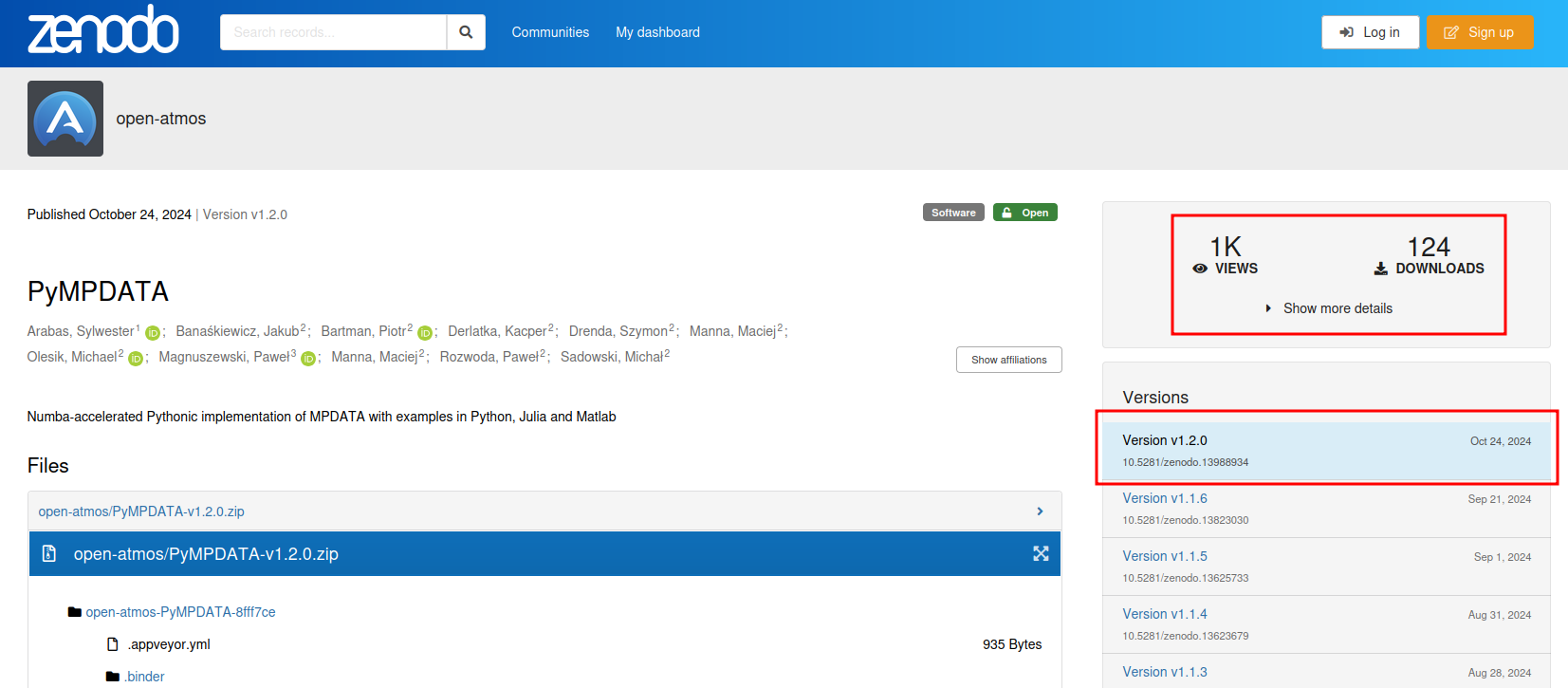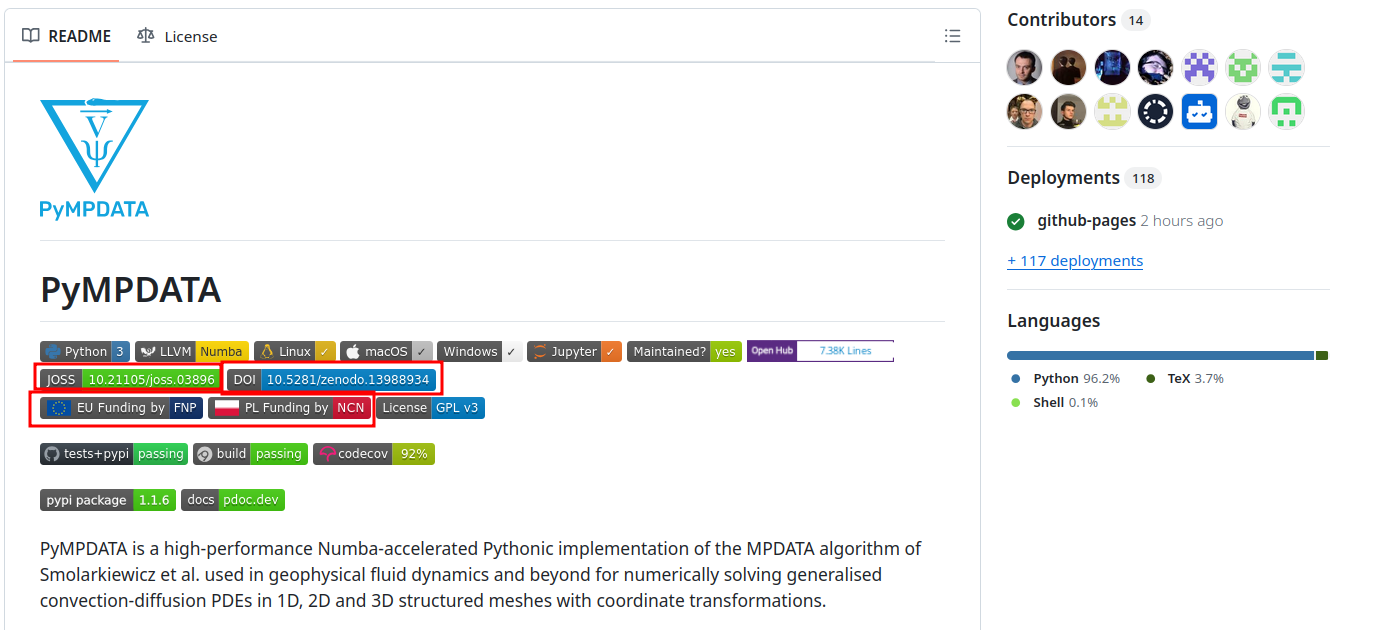8 FAIR Principles
8.1 Overview
For years, a movement has developed within the scientific community unstoppable to promote access to all information related to jobs, experiments and scientific publications, so that their validation is facilitated and reproduction/replication by other interested researchers or experts.
This movement has especially concentrated, in its initial phase, on guaranteeing at least access to the raw materials necessary to develop many of these projects: the data. The fundamental principles that must be met so that data can be indexed and reused as much as possible, they are called FAIR Principles and are included, among other sources, in the European Commission guidance documents for researchers participating in projects funded by said organization. These FAIR principles were initially established by Wilkinson et al. (2016) and they are:
Findable: Data and metadata (data that describes the data, such as its format, content, meaning, link with other data, etc.) must receive a globally unique and persistent identifier that allows it to be located directly. The most used standard today is the DOI system (ISO 26324). The metadata must include clearly and explicitly identify the data they describe, and both data and metadata must be registered or indexed in sources that allow their search and retrieval.
Accessible: Data and metadata must be obtainable through a standard and open communication protocol. Metadata must continue to remain accessible even when the data is no longer available.
Interoperable: Data and metadata must use standard and open knowledge representation formats, vocabularies that follow FAIR principles and must include references to other data and metadata with which they are related.
Reusable: The data and metadata are described in a rich and precise manner, with multiple relevant attributes that facilitate their use by other users.
It is important to emphasize the importance of publishing openly and following good reviewable and reproducible/replicable research practices. For example, The National Commission for the Evaluation of Research Activity (CNEAI) has published in 2023-2024 new criteria for evaluation of publications valid for be able to be evaluated in the granting of a six-year period of research. Likewise, in all the recent calls financed by the different ministries of the Government of Spain It is required that research results, especially all publications, datasets, software and procedures are publicly accessible and comply with FAIR principles.
However, there is still some way to go. A recent study (Kumar et al., 2024) analyzed the degree of compliance with the FAIR principles (the so-called FAIRness) of the results research published by recently funded multi-stakeholder projects within the European H2020 framework program and related to the agri-food sector. As main conclusions, less than 10% of the projects analyzed managed to comply with the FAIR principles, although these principles were fulfilled to a greater extent in the articles of research published in journals and conferences, as well as in books.
In general, another conclusion is that the European agri-food and rural sector is becoming increasingly dependent on data and that the application of the principles FAIR contributes to improving decision-making and better exploiting innovation results derived from these projects. However, it is also noted that the research community for the development of the agri-food and rural sector still has limited experience in the application of these principles.
8.2 Publication of source code and technical documentation
Platforms like GitHub and GitLab make project management and publishing much easier software within research initiatives and projects, as well as publication and maintenance of digital technical documentation centers on tools, procedures and good practices related to the activity of said initiatives.
Examples of the SoilWise project, funded within the HE program of the European Community.
SoilWise digital co-creation space on GitHub. It has been achieved creating an organization (free of charge), so that repositories can be created on this platform, grouped under the umbrella of the project, for different purposes: lists of software of interest, technical documentation, user manuals, architecture of the proposed platform, etc.
Documentation Center. Here we use the MkDocs solution, which works with the Python language (Quarto has great advantages in this aspect).
Repository with data collection tools, documented in the page describing the data collection process in the project infrastructure.
Open repositories of data and research material such as Zenodo and Figshare can help publicize and cite research material. For example, Zendo can issue a persistent identifier (DOI) for a software repository on GitHub pointing to a particular version of the software that has been released and tagged from that project on GitHub. This allows it to be included in a scientific publication to know with certainty what exact version of the code was software has been used to perform the work reported in that publication.
As an example, Figure 8.1 shows the Zenodo page corresponding to the PyMPDATA software, which points to the original software repository hosted on GitHub, shown in turn in the Figure 8.2. we can see metadata cross-references that maintain connection consistency in both directions.


The project page in Zenodo points to a specific version of the GitHub repository, and maintains a list of all the previously referenced versions of the same project. Each new version receives a different DOI, to differentiate them univocally.
The repository description page on GitHub displays, among other tags, the DOI for that version in particular, the DOI to the scientific article published in JOSS explaining this software, as well as other labels for attribution of project financing sources.
8.3 Dataset publication
Zenodo is, probably along with Figshare, one of the most well-known and widely used open data repositories in research, especially in Europe, being a project integrated into OpenAIRE, a non-profit organization created by the European Union to promote open science.
Scientific publications in open access (open access).
Important to link the DOI of a dataset in an article, so that they can be traced (in reverse) the DOIs of the publications that use said dataset.
8.4 Reference management and open publication
In addition to the assignment of a DOI to articles, data sets, software and other elements of research work, there are some additional tools that facilitate the identification of the works and the attribution of their authorship (many of them with support explicit in Quarto)
The ORCID is a free, unique and persistent identifier for individuals who engage in research, innovation and academic activities. Allows you to identify quickly the identity of an author in a publication or scientific work or the person in charge to publish and maintain a resource (dataset, software repository, etc.). Furthermore, the ORCID allows you to generate a list of all the contributions made by the identified individual.
There is an extensive list of preprints files that allow the publication of preliminary works that have not yet gone through a review process by pairs for publication in a magazine. More and more publishers accept (and even encourage) publication of these documents to quickly record research progress, due to the high times required by the review and publication process in many prestigious journals.
PLOS is a non-profit Open Access publisher, which edits and publishes several high-impact, wide-spread digital magazines in many areas including, transformation and sustainability.
A growing number of publishers are also adopting open publishing principles (Open Access), although usually impacting a significant cost on the authors or the institutions to which they are affiliates to cover publication costs.